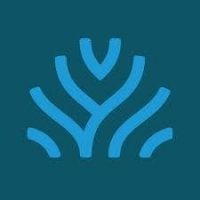Villa Center
Drug Rehab Center in Santa Ana, California
- Opioid Addiction
- Dual Diagnosis
- Alcoholism
Villa Center is a SAMHSA-accredited substance and mental health treatment facility in Santa Ana, California that offers Inpatient and Aftercare Support services as well as Dual Diagnosis levels of care with professional staff and private health insurance acceptance.
About This California Facility
Villa Center, located in Santa Ana, California, is an Addiction Treatment Facility that specializes in assisting individuals struggling with alcoholism, opioid addiction, and dual diagnosis. As a reputable center, Villa Center holds several certifications and licenses that underscore its commitment to quality care. Accredited by the Substance Abuse and Mental Health Services Administration (SAMHSA) and possessing a State License, Villa Center ensures that clients receive the highest standard of treatment and support.
At Villa Center, a range of comprehensive services is available to address addiction and substance abuse issues. The center offers inpatient care, providing a safe and structured environment for clients to receive intensive treatment and begin their recovery journey. Aftercare support is also provided, ensuring that individuals receive ongoing assistance and guidance as they transition back into their everyday lives. Moreover, Villa Center specializes in dual-diagnosis treatment, recognizing the importance of addressing both addiction and mental health concerns concurrently. By integrating therapy, counseling, and evidence-based practices, Villa Center strives to provide holistic and personalized care to each client, promoting lasting recovery and improved overall well-being.
Genders
Ages
Modality
Additional
Accreditations
State License
SAMHSA
Conditions and Issues Treated
Opioid addiction is the result of repeated use, or abuse, of opioid drugs. It is recommended for people who are dependent on opioids, or who have a high risk for dangerous health concerns, to seek professional treatment. Treatment plans usually include behavioral therapy and medication-assisted treatment.
Opioid drugs include: fentanyl, heroin, methadone, oxycodone, and oxymorphone.
Opioid addiction treatment is beneficial for:
- People who have a history of severe withdrawal.
- People with a high risk for dangerous health concerns.
- People having difficulty overcoming opioid addiction on their own.
There are different kinds of Dual Diagnosis:. A person who simultaneously experiences both a mental illness and an addiction disorder. Or, a person who experiences one or more coexisting (simultaneous) mental health conditions in addition to a primary substance use disorder.
The treatment requires a multi-disciplinary approach, it’s crucial for individuals to partner up with a healthcare provider who understands all the recovery components.
Alcohol Abuse, Dual Diagnosis (Co-Occuring Disorders), Opioid Addiction
Levels of Care Offered at Villa Center
This center offers a variety of custom treatment tailored to individual recovery. Currently available are Aftercare Support, Dual-Diagnosis, Inpatient, with additional therapies available as listed below.
Inpatient treatment is the most intensive level of care, and it’s necessary for those who aren’t able to control their addiction. These patients also must be drug-free before attending inpatient programs .
During inpatient treatment, addicts live at an inpatient facility 24 hours a day while receiving help. This type of program is generally recommended for those who need to go through detoxification or who are struggling with serious addiction-related issues.
Aftercare support is a service many addicts need to ensure their success at recovery. This service usually includes one-on-one or group therapies, assistance from a sponsor and other types of help designed to make sure the patient continues living a life free from drugs.
Patients also may require medication to help them battle addiction. Some people have been able to successfully recover without additional medications, but others have found that they need help during their transition. Long-term, the patient must take the initiative to attend meetings and receive help from other addicts in recovery.
Therapies & Programs
People in addiction recovery can benefit from individual therapy. This type of therapy involves meeting with a therapist one-on-one. This allows for a personal and trusting relationship to be built so that the patient can be truly themselves and express any emotions they feel. Individual therapy leads to greater understanding and peace about your triggers for addiction and coping strategies to prevent relapse.
Couples therapy for drug addiction is based on the belief that addiction is a family disease. Everyone involved with an addict, not just the addict themselves, is affected by their behavior and the changes the addict goes through. The relationship also changes the addict’s significant other and has likely picked up some codependent behaviors. Codependency is a term used to describe a person obsessed with another person and their needs and feelings while neglecting their own. Addicts are usually people-pleasers, so it is understandable how one can become codependent in relationships with addicts.
Family therapy is a type of group problem-solving that aims to improve communication and relationships between the patient, their family, and sometimes friends. The main goal of family therapy for drug addiction is to create an environment where communication can occur without judgment, hostility, or blame. The therapist is with the family as they learn to communicate with each other differently, especially with the addict when s/he is using.
Group therapy sessions are held in rehab facilities, clinics, churches or community centers that offer drug addiction treatment. People who attend these groups are encouraged to voice their feelings and support other addicts in recovery. This helps group members strengthen their own recovery program while cheering on others who are struggling with sobriety.
Group therapy sessions provide recovering addicts with a chance to cope with everyday situations that many face. Group therapy sessions are held in rehab facilities, clinics, churches or community centers that offer drug addiction treatment.
People who attend these groups are encouraged to voice their feelings and support other addicts in recovery. This helps group members strengthen their own recovery program while cheering on others who are struggling with sobriety.
If you’re looking for addiction treatment, it’s important to find a facility that offers trauma therapy. This type of therapy helps people process and understand the past traumas that have led to their addiction. Trauma therapists will work with clients to help them understand their past and present relationships and show them that they are worthy of love. This therapy is typically done using visualization, discussion, and writing down thoughts and feelings.
Trauma Therapy is a form of therapy that involves working with a patient to help them process and understand the past trauma(s) in their life. This therapy is typically done using techniques such as visualization, discussion, and writing down thoughts and feelings. The main goals of trauma therapy is to help clients express their emotions and talk about what they are feeling.
Cognitive Behavioral Therapy (CBT) helps addicts identify faulty, negative thinking so that they can work together with the therapist to find healthier ways of thinking. CBT focuses on specific aspects of each person’s thinking, feeling, physiology, and behavior. It aims to identify specific problems in these areas, and create a personalized treatment strategy.
Cognitive Behavioral Treatment (CBT), Couples Therapy, Family Therapy, Group Therapy, Individual Therapy, Motivational Interviewing, Residential Long Term (>30 Days), Trauma Therapy
Payment Options Accepted
For specific insurance or payment methods please contact us.
Is your insurance accepted?
Ask an expert, call (888) 674-0062
Additional Details
Specifics, location, and helpful extra information.
Santa Ana, California 92701 Phone Number(714) 541-2732 Meta DetailsUpdated November 25, 2023
Staff Verified
Patient Reviews
There are no reviews yet. Be the first one to write one.
Santa Ana, California Addiction Information
More than 3 million of California's citizens are addicted to illegal drugs. Almost 800,000 people use hard drugs, almost 5 million use marijuana, and another 2.1 million abuse alcohol every year. Other substance abuse issues such as binge drinking and teen drug use are also common. Many illegal drugs such as cocaine, heroin, methamphetamine, and marijuana are smuggled into the state from Mexico.
The drug addiction problem in Santa Ana, California, is relatively bad. There were 319 drug-related deaths in Santa Ana from 2006 to 2015. 5% of high school students report using cocaine. Drug addiction and abuse can lead to criminal activity, joblessness, homelessness, and family violence. Methamphetamine and marijuana are commonly abused in the town. Most rehab facilities will begin with an evaluation to determine the best course of treatment.
Treatment in Nearby Cities
- Lompoc, CA (160.5 mi.)
- Lake Forest, CA (12.6 mi.)
- Rancho Cucamonga, CA (29.0 mi.)
- Morgan Hill, CA (316.5 mi.)
- Scotts Valley, CA (326.7 mi.)
Centers near Villa Center




The facility name, logo and brand are the property and registered trademarks of Villa Center, and are being used for identification and informational purposes only. Use of these names, logos and brands shall not imply endorsement. RehabNow.org is not affiliated with or sponsored by Villa Center.


